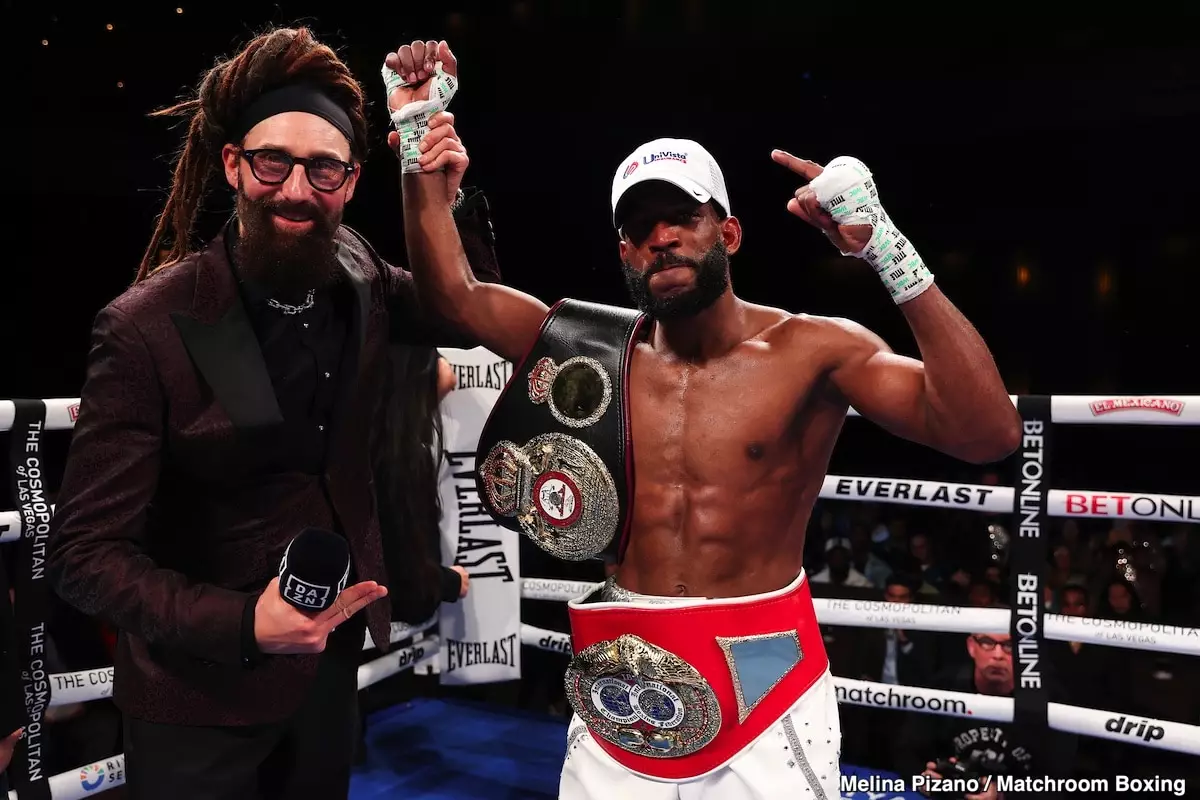The boxing world is often rife with rivalries and intriguing matchups, but sometimes the complexities of the sport reveal deeper layers of fear, ambition, and business acumen. One such situation swirling in the boxing arena involves Keyshawn Davis, a talented Olympian, and Andy Cruz, his long-time amateur rival from Cuba. Despite their past encounters that culminated in four losses for Davis, the heavyweight of the lightweight division now finds himself unwilling to take that fight in the professional realm. This article delves into the implications of Davis’s reluctance, the dynamics of the boxing business, and the nature of fear that drives decisions in professional boxing.
The Shadow of Previous Defeats
The most significant hurdle standing between Davis and a professional bout against Cruz is arguably the residue from their past competition during their amateur careers. Having faced Cruz four times and walking away empty-handed on each occasion, it’s clear that the specter of these losses influences Davis’s mindset. While he provides multiple justifications for not pursuing Cruz—a narrative buoyed by references to Cruz’s supposed flaws—one cannot overlook the underlying element of fear. The prospect of a fifth match ended with yet another defeat may tarnish Davis’s burgeoning career before it even reaches its peak.
In the competitive landscape of boxing, business considerations often outweigh athletic aspirations. Davis’s decision to divert his attention toward making headlines and challenging high-profile opponents like Gervonta Davis or WBO lightweight champion Denys Berinchyk is rooted in a calculated approach to career management. From his standpoint, focusing on fights that promise greater financial rewards and fan engagement makes perfect sense. In that vein, Cruz does not meet the criteria of a lucrative opponent. Yet, this sterility in logic—focalized exclusively on business—overshadows the sport’s essence: the competition and allure of bringing rivals face-to-face in the ring.
Despite claiming that Cruz is “too flawed” or “lacking a fan base,” Davis must acknowledge that fighting Cruz would serve more than just a shot at revenge; it represents an opportunity to solidify his legacy. A victory over Cruz might not only quench a thirst for vindication but also enhance his career’s narrative—a compelling story worth telling to fans and promoters alike.
Davis certainly believes that the backing from Top Rank gives him an edge, particularly in contrast to Cruz’s comparatively lesser exposure under Matchroom. However, one must question whether the promotional imbalance genuinely reflects talent or marketable potential. Throughout the sport’s history, skilled boxers have often lived in the shadows of promotional decisions that favor marketable personalities over raw talent, and this perception pervades the current landscape.
While Davis enjoys the spotlight, Cruz has proven himself an impressive contender through an active and promising start as a professional fighter. Yet, the zest in the sport often lies in the unpredictable magic that occurs when rivals clash, transcending business priorities. The boxing fanbase craves matchups that stir emotional connections, and this could widen the appeal for both fighters, irrespective of their promotional affiliations.
Central to this discussion is the dichotomy of fear and courage in sport. Fighters often wear dual masks—one as strategic businessmen and another as competitors driven by their passion. Davis’s reservations reiterate a fundamental truth about boxing: that fear can serve as a catalyst or a restraint. On one hand, avoiding Cruz might aid in maintaining an untarnished record; on the other, facing him would not only offer the possibility of redemption but propel Davis further towards mastery of his craft.
Davis’s conversations reveal a complex mindset: a desire for legacy intertwined with business ambition. He recognizes the value of significant opponents in defining his career’s trajectory but remains hesitantly tethered to the fear of revisiting past failures. In many ways, that tension forms the essence of boxing itself—an ongoing contest between glory and anxiety.
The rivalry between Keyshawn Davis and Andy Cruz embodies the struggles and intricacies of professional boxing. As Davis strategically navigates his career path, he must confront the fears rooted in past defeats yet balance them with the desire for progress and legacy. Ultimately, the choice rests in his hands: to seek opportunities or remain aloof, driven by the fears of yesterday. Only the future will tell which path he chooses.

